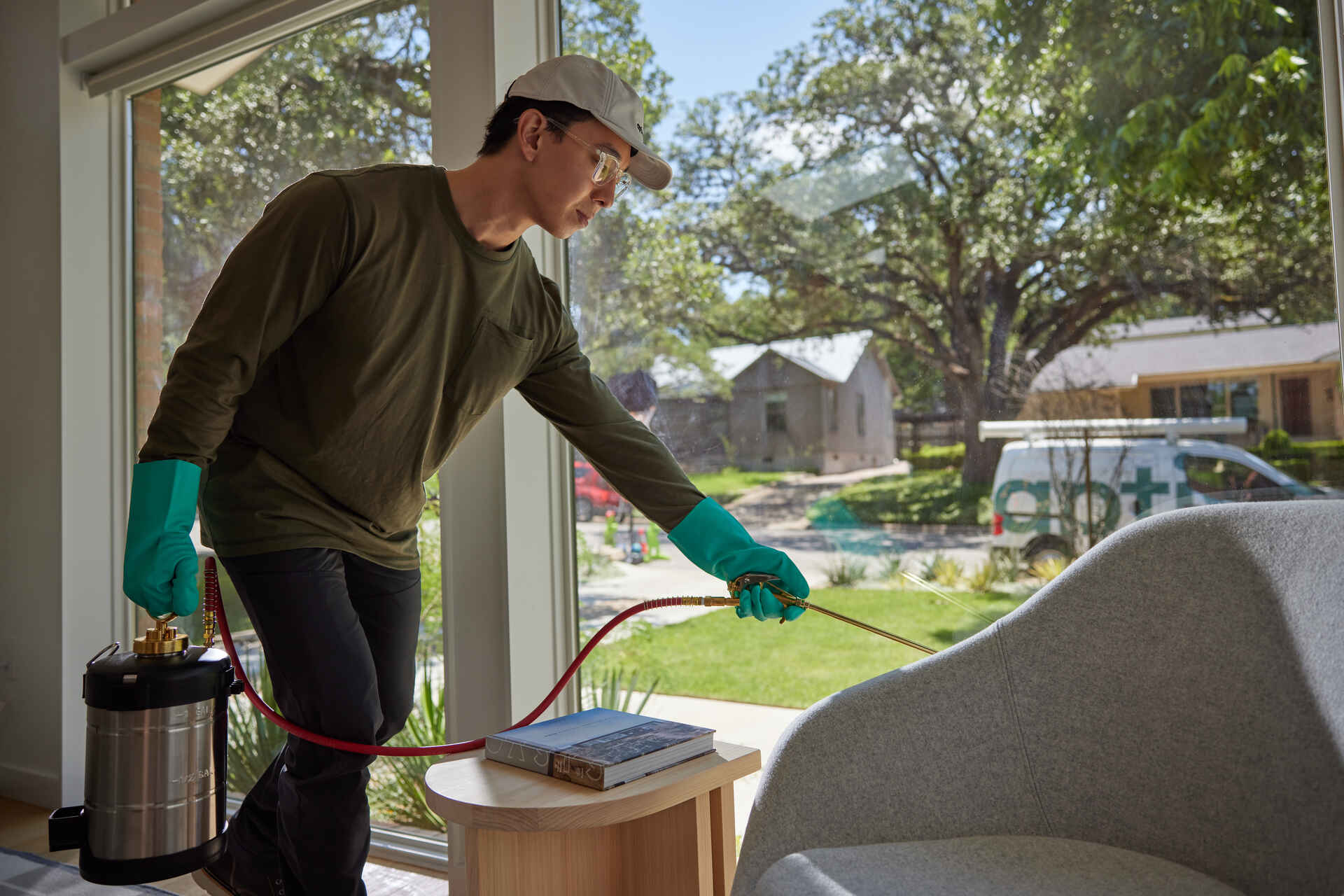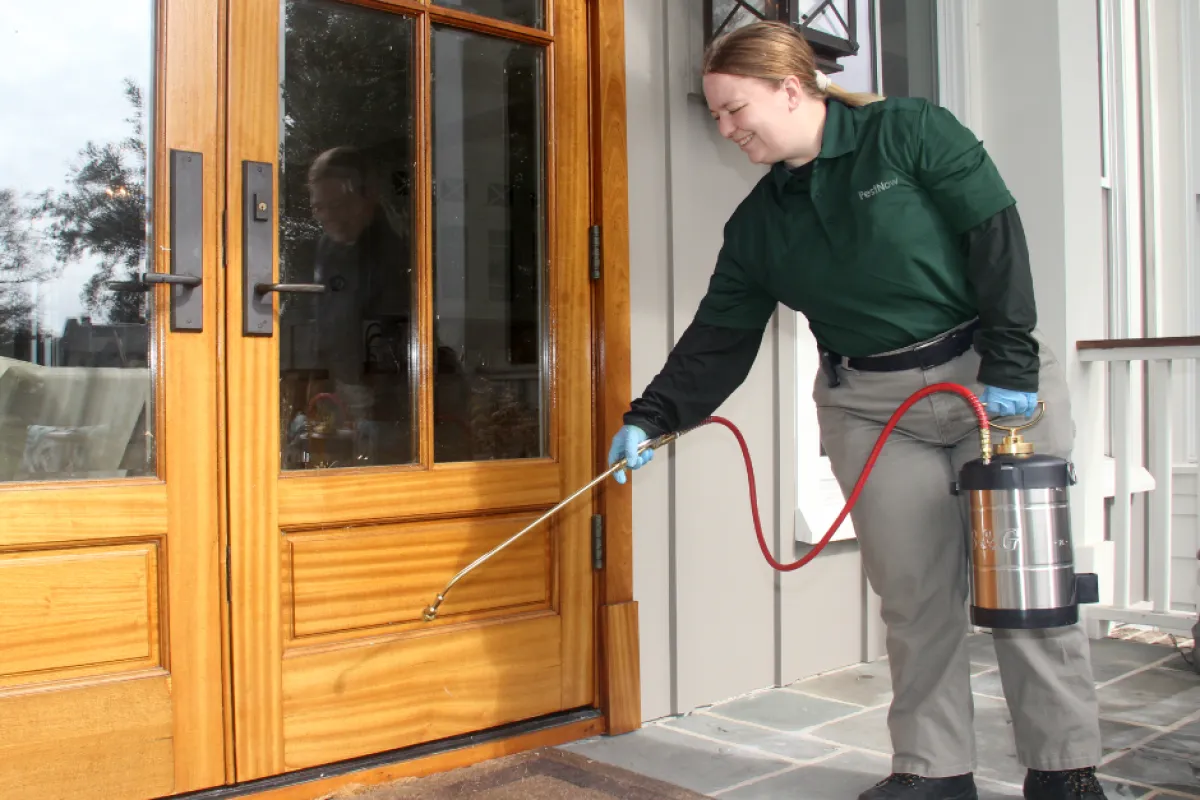High Quality A1 Pest Control Services Charlotte - Safeguard Your Home
High Quality A1 Pest Control Services Charlotte - Safeguard Your Home
Blog Article
Bed Insect Therapy Failure: Contrasting Chemical Vs. Non-Chemical Solutions
In the realm of bug control, particularly when taking care of the relentless problem of bed bugs, the choice between chemical and non-chemical therapy options can be a critical one. Both techniques supply distinctive advantages and downsides, affecting factors such as effectiveness, safety considerations, and general expense. By checking out the nuanced details of each technique, a more clear understanding of which course to seek in dealing with a bed bug problem can be attained.
Effectiveness of Chemical Treatments
Chemical treatments for bed bug infestations have been widely identified for their rapid and powerful efficiency in removing these parasites. When considering the performance of chemical therapies, it is critical to recognize that they can supply a extensive and quick solution to a bed pest problem. Expert exterminators frequently depend on pesticides to target bed pests at various phases of their life process, consisting of adults, nymphs, and eggs. These chemicals commonly function by interfering with the bed bugs' nerve system, bring about paralysis and eventual death.
Additionally, chemical therapies have the benefit of using residual impacts, meaning that they can remain to get rid of bed bugs even after the initial application. This residual action is particularly beneficial in combating any possible re-infestations. Additionally, the fast activity of chemical treatments can bring alleviation to people facing serious bed pest invasions, allowing them to gain back control of their home rapidly.
Safety Interest In Chemical Solutions
One crucial facet that calls for mindful consideration when utilizing chemical services for bed bug treatment is ensuring the security of occupants and the atmosphere. Exposure to certain chemicals utilized in bed bug therapies can lead to respiratory problems, skin inflammation, or various other unfavorable responses, especially in individuals with pre-existing problems or level of sensitivities.
Additionally, the ecological effect of chemical options is one more substantial consideration. Some chemicals utilized in bed pest therapies may be unsafe to helpful pests, wild animals, and communities if they leach into the dirt or water supply. It is vital to make use of chemical treatments deliberately, adhering to security standards, and thinking about less hazardous alternatives to reduce these risks and make certain the safe and effective monitoring of bed bug invasions.
Benefits of Non-Chemical Techniques
Taking into consideration the potential security worries and ecological influence connected with chemical services for bed insect therapy, checking out non-chemical techniques provides an encouraging alternative with several distinctive benefits. Non-chemical approaches offer a safer option for homes, specifically those with animals, people, or kids conscious harsh chemicals. These techniques remove the dangers of exposure to toxic substances, minimizing the possibility for damaging wellness impacts. Moreover, non-chemical therapies are eco pleasant, as they do not add to air or water pollution, making them a sustainable choice for parasite control.
Additionally, non-chemical solutions can be effective in targeting bed pests, consisting of hard-to-reach locations where chemical therapies may not penetrate. Techniques such as warmth treatment, vacuuming, vapor cleaning, and mattress encasements offer complete elimination without the use of dangerous chemicals. Moreover, non-chemical strategies can be less turbulent, requiring very little prep work and enabling for quicker reentry right into treated locations. Overall, selecting non-chemical bed insect therapy methods not just focuses on safety and security and environmental management but look at these guys also guarantees thorough and efficient pest control.
Limitations of Non-Chemical Treatments

Furthermore, non-chemical treatments frequently require numerous applications to accomplish effective removal. This can be lengthy and might not always guarantee total elimination of all bed pests and their eggs, especially in covert or hard-to-reach places.
Furthermore, the success of non-chemical therapies greatly relies upon appropriate application and thoroughness, which can be testing for people without professional expertise. Inadequate application of non-chemical methods might cause insufficient eradication, resulting in consistent invasions and the demand for added therapies.
As a result, while non-chemical treatments have their benefits, it is essential to recognize these restrictions and consider them when determining the most effective approach for managing bed bug invasions.
Price Comparison: Chemical Vs. Non-Chemical Options
Offered the restrictions linked with non-chemical treatments, an essential element to evaluate in the context of bed insect administration is the expense comparison between chemical and non-chemical choices. In comparison, non-chemical treatments like heat therapy or vapor can be more expensive, with expenses varying from $1,000 to $6,000 for a whole home. While the preliminary expense of chemical therapies might seem lower, numerous therapies may be needed to totally remove the invasion, possibly enhancing the total cost.
Conclusion

Taking into consideration the potential security issues and ecological impact connected with chemical options for bed pest treatment, discovering non-chemical techniques presents an appealing option with numerous distinctive benefits.Provided the constraints linked with non-chemical therapies, a vital element to evaluate in the context of bed insect administration is the price contrast in between chemical and non-chemical alternatives. In click for more info comparison, non-chemical therapies like warm therapy or vapor can be extra pricey, with prices varying from $1,000 to $6,000 for an entire home. While the preliminary expense of chemical therapies might appear reduced, multiple therapies may be called for to completely remove the problem, possibly boosting the total price.In verdict, when contrasting chemical and non-chemical bed pest treatment choices, it is essential to consider performance, safety and security, advantages, constraints, and cost.
Report this page